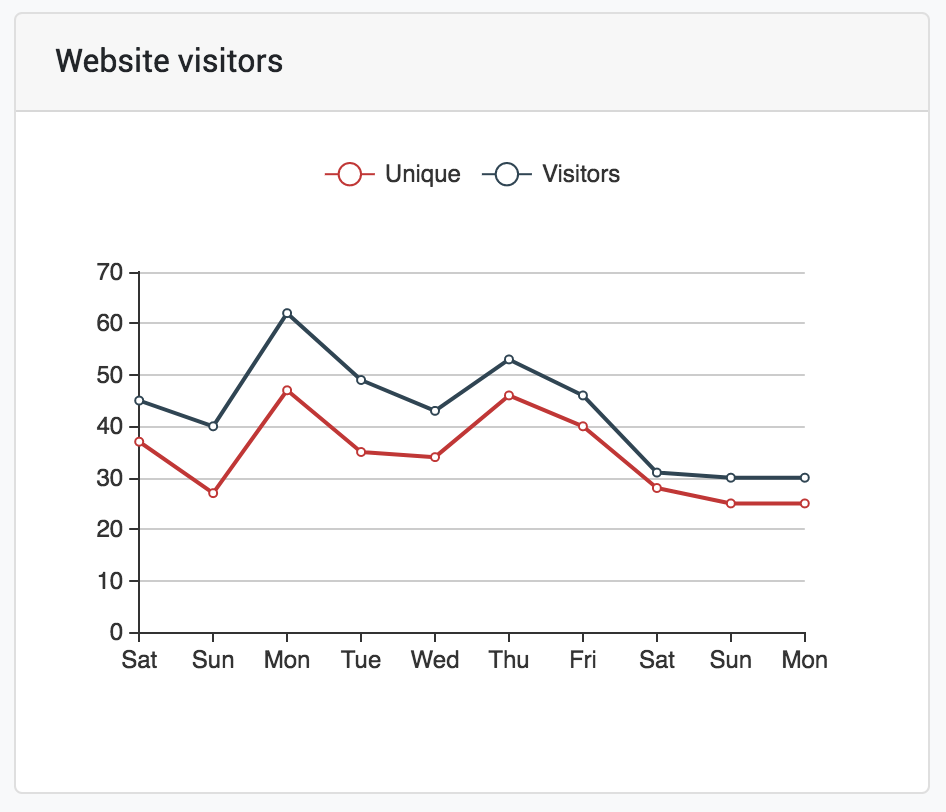Provide TrackingCode implementation Widget and Admin-Dashboard object to see latest visits from Matomo (former Piwik).
For the installation of modules Composer is required.
composer require luyadev/luya-module-matomoIn order to add the modules to your project go into the modules section of your config:
'modules' => [
// ...
'matomoadmin' => [
'class' => 'luya\matomo\Module',
'serverUrl' => 'https://matomo.example.com', // without trailing slash, use full schema path.
'siteId' => 1,
'apiToken' => 'THE_API_TOKEN',
]
]- serverUrl: the URL which points to the Matomo installation
- siteId: get the site Id in the Matomo dashboard under Settings > Websites > Manage
- apiToken: get the Matomo API token under Settings > Platform > API > User authentication
After configure the admin module you can now integrate the TrackingCode widget. The tracking code will register the javascript tracking and as fall back also the tracking image between noscript tags.
We reccommend to integrate the TrackingCodeWidget right before the endBody() function in the layout.
<?= \luya\matomo\TrackingCodeWidget::widget(); ?>
<?php $this->endBody() ?>


